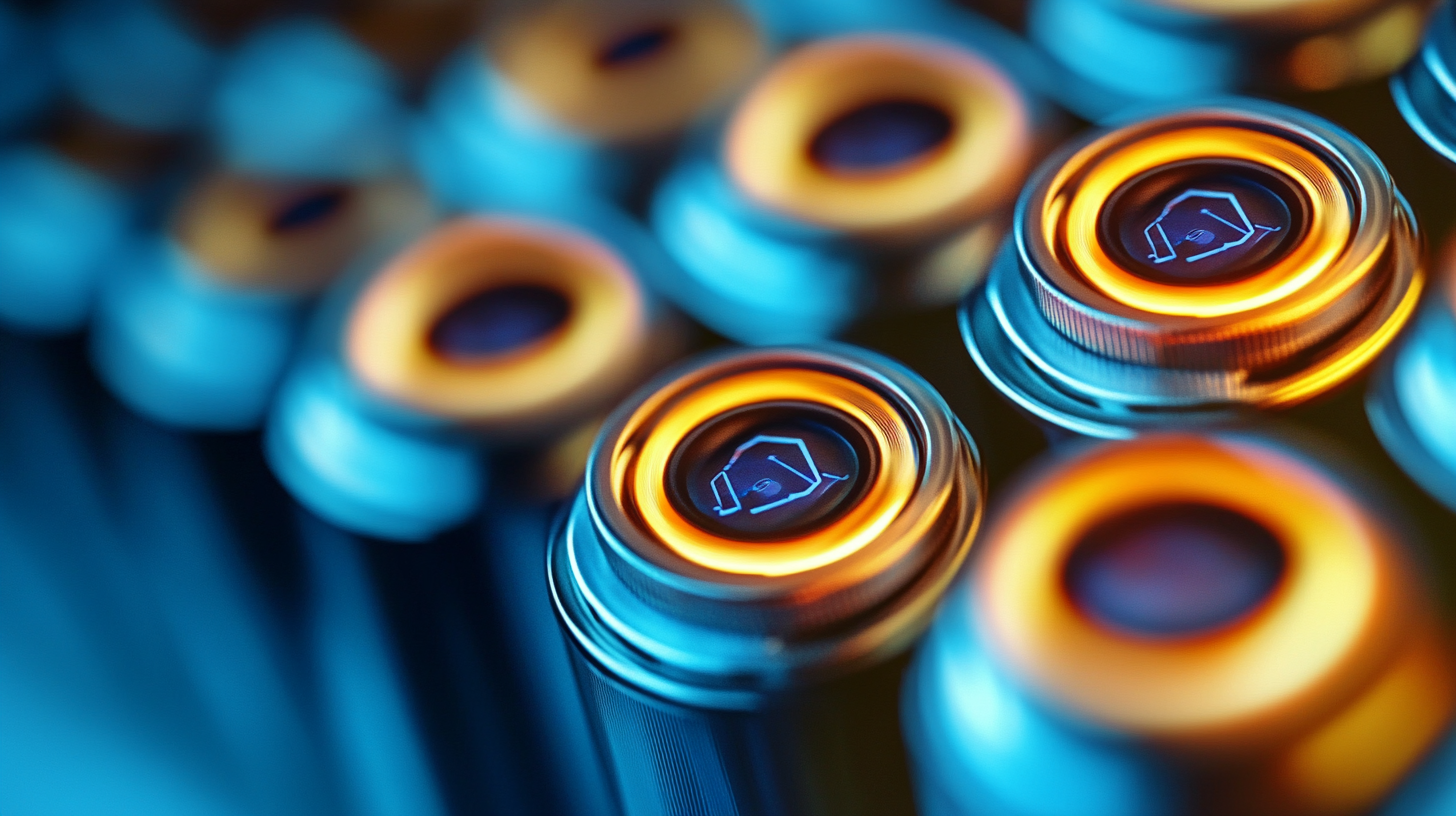2025 brings with it the prospect of many changes to the field of battery technology, with lithium representing the technology of choice for many of these changes. Global buyers have become interested observers of Lithium Battery innovations, not just to examine solid-state solutions, but to watch all developments as demand for sustainable energy and electric vehicles increases. This blog will tell you about some emerging trends affecting the future of lithium batteries and how these trends are set to influence sectors from automotive to renewable energy.
With all these research and developments happening in lithium battery technology, we can expect not just better efficiency and capacity but also increased sustainability. Crucial trends such as solid-state batteries, recycling initiatives, and development of battery management systems are thus molding energy storage solutions that are more reliable and much cleaner. As we discuss these trends in depth, it is of paramount importance for the global buyer community to be aware of developments having implications on their supply chains and business strategies alike. Join us in an exciting journey of lithium battery advancements and the implications for the economy of tomorrow.

Owing to rapid advancements in battery technology and the increasing demand for EVs, the lithium battery market is facing considerable changes which should come into effect by 2025. Solid-state batteries, which can be defined as solid electrode and solid electrolyte systems, present themselves as the most potential alternatives for conventional lithium-ion technologies since they offer a higher energy density and enhanced safety features. For automotive manufacturers, inventing durable batteries for this new field of application goes hand in hand with the world requirement for more sustainable and efficient energy solutions. The automotive industry continues to grow fast; hence, the demand for advanced lithium battery materials has rapidly increased. These demands are influenced by customer expectations of longer ranges, shorter charge time, and safety. This new area imposes not only competition among manufacturers but also deep perturbation in the overall materials supply chain in the lithium industry. Given the projection of tremendous growth, it is important for buyers globally to understand these trends influencing the battery technology of tomorrow.

Energy storage will be transformed in many ways as we head toward 2025 with the detailed advancement in lithium battery technologies, especially those of solid-state batteries. Solid-state batteries are advanced in comparison to standard lithium-ion batteries in terms of energy density and thermal stability. These enhancements come at a time when industries are increasingly calling for safety and efficacy in energy applications.
The higher generation of interest in these batteries is driving forward solid-state technology, especially in the electric vehicle industry. A lot of resources are being channeled into research and development by battery manufacturers to counter existing commercialization issues. Due to the inherent traits of longer life cycles and better all-around performance, solid-state batteries might just become the darling of an international clientele looking for energy storage solutions that are efficient and sustainable shortly.

-D. The manufacture of environmentally sustainable lithium batteries for the rapidly transforming electric vehicle industry is now topical. As the environmental consequences of battery manufacturing come under closer scrutiny, the manufacturers are gradually turning to more sustainable forms of battery manufacturing. The application of solid-state batteries and semi-solid technologies represents not only augmented energy density but also decreased environmental footprints. These address at once the two-pronged as it were performance and sustainability imperative for global carbon neutrality.
The development towards sodium-ion batteries opens a new dimension towards reducing raw material scarcity and lowering costs. As an evolution, this shift in battery technology reflects the general trend that tended more towards the use of green materials and processes. The more people realize that the batteries they use do have an environmental cost as consumers, the more the industry is brought under the accountability of the manufacturers, bringing the whole sector towards more sustainable practices.

In the next few years, the lithium battery applications are shaped such that they will completely revolutionize the electric vehicle and renewable energy sectors. With high energy density and safety as prime requirements, trends that may be expected in the future show promising possibilities for solid-state battery technology. Solid-state batteries boast excellent thermal stability compared with liquid types and thus are positioned to meet the growing demands for efficient and long-lasting power supply.
With increasing consumer expectations in range and charging speeds-from the existing gasoline-fueled vehicles to electric counterparts-the solid-state battery is set to dominate any alternatives EV manufacturers would consider for submission to these expectations. Not to forget, a large proportion of energy solutions for the renewable sectors will require efficient and reliable energy storage, further providing a platform for acceptance of these batteries. With every slant toward further battery chemistry and design innovations, lithium batteries will continue to support electric mobility and ensure a cleaner and greener energy landscape.
The lithium battery industry is at sea change, heavily underpinned by evolving global supply chain strategies. Lithium has now plunged prices, now fetching three-year lows, which symbolizes intense market readjustments; this change affects or concerns not only lithium miners but also manufacturers, who are striving for stable supply chains to meet ever-growing demand for batteries for electric vehicles.
Most significantly, the emergence of solid-state battery technology presents both challenge and opportunity. While the move to this next-generation technology seen as the "holy grail" of electric vehicle batteries will be undertaken, companies must manage the process complexities of supply chain logistics and materials sourcing. The focus on innovation remains critical for manufacturers that would like to leverage technological advances while addressing possible disruptions in material availability and pricing volatility.
The growth of the lithium battery market is driven by advancements in battery technology, the increasing demand for electric vehicles (EVs), and consumer expectations for longer ranges, reduced charging times, and enhanced safety features.
Solid-state batteries utilize solid electrodes and electrolytes and are significant due to their higher energy densities and improved safety features compared to traditional lithium-ion technologies.
The recent plummet in lithium prices to a three-year low signals a period of intense market readjustment, impacting both lithium miners and manufacturers who rely on stable supply chains to meet the growing demand for EV batteries.
Manufacturers face challenges regarding supply chain logistics and material sourcing, especially as they pivot towards the next-generation solid-state battery technology.
The growing demand for electric vehicles has surged the interest in advanced lithium battery materials, affecting market competition and the overall supply chain in the lithium industry.
Innovation is crucial for manufacturers in the lithium battery sector as they need to leverage advancements to navigate potential disruptions in material availability and cope with pricing volatility.
The future encompasses substantial growth in advanced battery technologies, with a focus on solid-state batteries, improved efficiency, and sustainability in energy solutions.
Consumer expectations significantly shape the market by pushing for technological improvements, longer battery ranges, faster charging times, and better safety standards, which drive manufacturers to innovate and enhance their offerings.
Increased competition among manufacturers leads to innovations and advancements in battery technology, affecting production strategies and the overall materials supply chain in the lithium industry.
Global buyers must stay informed on market trends and advancements as the evolving lithium battery landscape impacts supply chains, pricing, and availability of materials necessary for electric vehicle production.